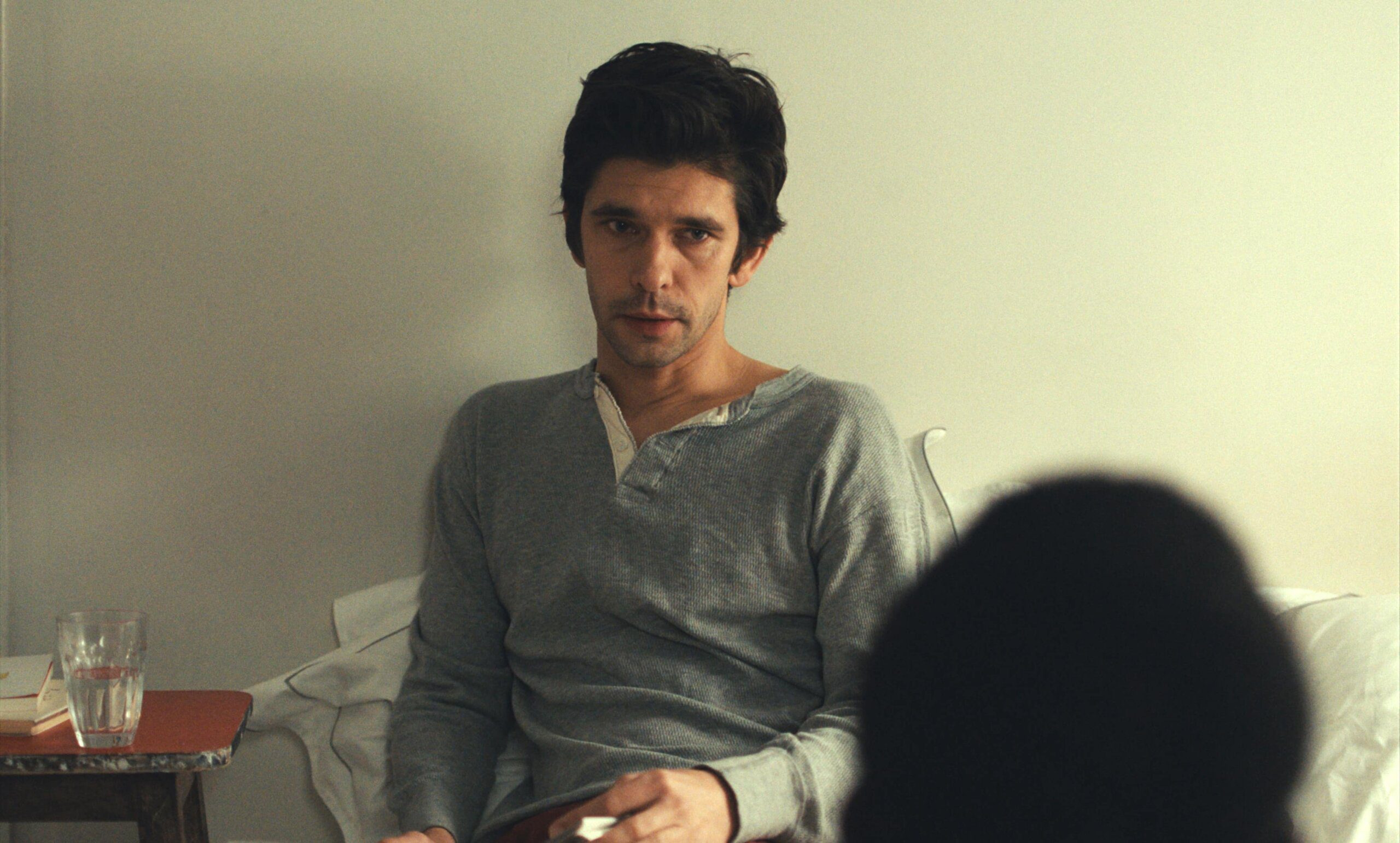“My concern is that censorship is doing what it’s set out to do, which is telling people to be aware of creating certain images,” Passages director Ira Sachs says. “Censorship’s intention is to punish people who step out of the norm, and that’s what these images are. They’re out of the norm not because they’re exploitative, but because the norm is so boundaried.”
In addition to being Sachs’s best film yet, the director’s latest feature, Passages, carries a new badge of honour. The drama from the acclaimed director of Keep the Lights on (2012) and Love Is Strange (2014) recently got slapped with an NC-17 designation by the MPAA, the U.S. ratings board. The citation reserved for explicit content limits audiences to above the age of 17 and carries restrictions about advertising and promotion. Sachs’s U.S. distributor MUBI rejects the label and is releasing Passages unrated, beginning with its U.S. theatrical release last week, and its Canadian rollout starting August 11. The challenge makes the film doubly compelling. Passages has lots of sex, but aside from one scorcher of a scene between stars Franz Rogowski and Ben Whishaw (which doesn’t even feature full-frontal nudity), it isn’t much racier than most other films that receive R ratings for sexual content.
The thrust of the matter, Sachs knows, is the image of two men banging. “In Spain, the film received a rating of 12-plus,” he notes. “They really feel differently about gay people having sex.”

Filmmaker Ira Sachs. Credit: Jeong Park
Whatever designation an outdated ratings board gives Passages, the fact that it has people talking about the censorship of queer life underscores how refreshing yet rare the images are in Sachs’s film. Passages is an irresistibly horny infidelity drama that dabbles in the messiness of monogamy, the exploration of fluidity and the perils of throupling. It’s a deeply moving study of queer love from Sachs that isn’t afraid to make audiences aroused and uncomfortable in equal measure. The film stars Rogowski and Whishaw as married couple Tomas and Martin, whose seemingly functional relationship shatters when Tomas, a filmmaker, picks up a woman, Agathe (Adèle Exarchopoulos) at his film’s wrap party. They have sex and the energetic tryst unlocks something in Tomas.
“Passages is an irresistibly horny infidelity drama that dabbles in the messiness of monogamy, the exploration of fluidity and the perils of throupling.”
Sachs’s frustration with censorship is significant, too, given Passages’ sex-positivity. The characters are unapologetic with the actions they take to satisfy desires. “Love is a term that can’t be generalized,” Sachs says. “What seems particular about Passages in comparison to my earlier work, particularly my earlier queer work, is that there’s an absence of shame. Nothing is hidden. There’s no drama of the illicit, and it’s disappeared as the driving force of my own existence from when I was young.”
The openness and unrepentant nature of these encounters appears as soon as Tomas returns home and eagerly tells Martin about his night with Agathe. Martin at first dismisses Tomas’s infidelity and says this sort of thing happens whenever he finishes a film. Sachs admittedly relates to his filmmaker character’s headspace when completing a shoot. “I’m used to people doing what I say, and suddenly they don’t, so there’s an adaptation to the world in which your power is limited,” the director notes. “That can feel unusual after a film shoot because you’re used to being a benign dictator. I wanted to establish the character of a man who has power, because that was significant for what the film ultimately destructs.”
Sachs acknowledges that Passages is a personal film, but it isn’t autobiographical, even though Tomas is a film director. “I see myself in Tomas in that I’m interested in what men do with power and how they behave badly,” Sachs observes. “But he’s an amalgam of men that I’ve known—filmmakers and otherwise—whom I’ve been both attracted to and repelled by.”
Tomas increasingly treats people badly the more he assumes the alpha male role in his relationships. He goes back and forth between Agathe and Martin whenever he feels bored, needy or jealous. Sachs isn’t worried if audiences find Tomas unlikable, either, since his cruel addiction to power is the point.
Rogowski, who previously starred in Christian Petzold’s wartime drama Transit (2018) and Sebastian Meise’s queer prison drama Great Freedom (2021), proves himself a true leading actor with Passages. It’s a bold performance that draws upon his puppy-dog charm, yet Tomas turns quickly and cruelly in Rogowski’s hands. Whishaw, meanwhile, plays the wounded lover with sensitivity and grace as Martin seems shell-shocked once Tomas leaves him for Agathe. Martin, in turn, cuttingly gets even by revoking access to elements of the life they built together, like their Parisian flat and their house in the country, which afforded Tomas a sense of permanence and stability. Martin, like Tomas, can be as cruel as he is tender. He ultimately feeds off Tomas’s relationship with Agathe to fulfill his own aspirations.
“What seems particular about Passages in comparison to my earlier work, particularly my earlier queer work, is that there’s an absence of shame.”
“It’s significant to me that the queer characters are not good,” Sachs says. The director says he drew upon Rainer Werner Fassbinder’s Fox and His Friends (1975) while gleaning inspiration from classic queer cinema (other influences include filmmakers like Frank Ripploh and Pier Paolo Pasolini). “I see Martin and Tomas as versions of the bourgeois couple [in Fox and His Friends] who exploit the Fassbinder character because they bring a woman into this house and they discard her,” Sachs explains. “There are different ways in which violence plays out, and I don’t want to say that Adèle’s character is innocent. She recognizes a marriage without fearing putting herself in the middle of it, so each of us is culpable. Our actions do not follow our beliefs—that’s actually where drama arises.”
Another aspect of a mature relationship drama that Passages demonstrates is how it observes a marriage falling apart. Gay marriages, just like straight ones, are fallible. Sachs acknowledges that there’s a political dynamic entailed in making failures as visible as success. “I have the opportunity to tell these stories, so if I’m doing something radical, it’s because of the absence in general of queer life in the movies,” Sachs says. “If you look at the history of queer filmmakers over the last 20 years, the ones who have been most successful have veered away from gay characters. The ones who are most embraced by the festivals and by the awards are straight films made by gay people. You can look at a director like Gregg Araki [Mysterious Skin, The Doom Generation] and say, ‘Why has his lineage not been recognized for what it is?’ He’s stuck to his guns.”
Sachs observes that personal experience can extend to actors, too. The heart of Passages is Whishaw’s award-calibre turn as Martin, a soulful lived-in performance that gives Tomas’s betrayal an extra sting. “Personal experience is both important and not important, but it is valuable to me,” Sachs says when asked about casting queer versus straight actors in gay roles. Sachs has done both, skillfully directing actors like John Lithgow and Alfred Molina to deliver some of their best work as a married couple in Love Is Strange, but the casting of Passages is key to its spark. “That Ben has lived a life as an openly gay man is an asset to my film and is particularly an asset to the sexuality in the film. But actors have different assets.”

Ben Wishaw as Martin. Credit: Courtesy of SBS Productions
Passages draws upon the collision of experiences midway through the story when Tomas encounters Martin at their apartment and they enjoy passionate makeup sex. The scene, which Sachs believes earned the film its notoriety with the censors, sees a shift in the power dynamic as Tomas lets Martin take control of their lovemaking. Sex is rarely so hot, raw and honest as it is in this encounter. The scene’s palpable heat comes largely through Sachs’s choice to film the action in a single long take. The audience watches as Tomas gazes passionately into Martin’s eyes, while we see only the latter fervently thrusting. One senses intimacy reignited between the two men, but the sparks that fly don’t lead to a lingering afterglow. It quickly becomes clear that Martin has been used.
Sachs says the inspiration for the long take came from his admiration for late Belgian filmmaker Chantal Akerman, particularly her 1974 film Je tu il elle, which culminates with a 10-minute lovemaking scene in which the camera holds on two women in bed. “She wasn’t hesitant to place the camera in a position in which it watched without fear of duration,” Sachs says. “What I’m asking the audience to do in that moment is to live through a durational experience where they think they know where it’s going to end, and then they realize it doesn’t. It’s in those extra moments that that impact is made.”
Despite the intensity of the scene, and all the sex in Passages, the film doesn’t follow the trend of employing an intimacy coordinator to stage the entanglements. Sachs says he instead relies on his actors’ chemistry and instincts to coordinate the intimacy. “I feel that the coordination of intimacy in this film was made between myself and the actors. I begin with a clear conversation about what their boundaries are and, once they’ve been stated, there’s no further need to discuss because my intention is to respect those boundaries and they trust that I will,” Sachs says when asked about his choice to forgo an intimacy coordinator. “Each of them has limits that they were very explicit about, so from that point, I’m setting a situation in which they can improvise a narrative of sex that I can’t fully construct.”
Passages affords its characters a sense of discovery when bodies collide as the actors build upon the boundaries, relationships and trust established in a process that allows them to interpret the moments both ethically and artistically. “I don’t talk about sex much more than I talk about anything else in the film,” Sachs says. “I don’t talk about motivation. I try not to have language-defined actions because that becomes non-instinctual. I need a space for improvisation.”
As Sachs lets the actors navigate their space and rhythm together, there’s a genuine sense of people connected in the moment. Sachs accentuates the heat of Passages by exciting all the senses in a film that resonates with rich textures and colour palettes. It makes the case: more movies should make viewers blush.
“I took pleasure in colour and I equally took pleasure in skin,” Sachs says. “I wanted to make images that turned people on.” Sachs again draws from his cinematic reference, this time the collaborations of director Éric Rohmer and cinematographer Néstor Almendros, like Pauline at the Beach and Claire’s Knee. “Néstor was the DP, a super gay guy, and Éric was this super straight guy,” Sachs says. “They made these horny movies together where skin and body and light were always present as well as beauty and colour. That inspired me. I wanted to pleasure the audience.”


 Why you can trust Xtra
Why you can trust Xtra


